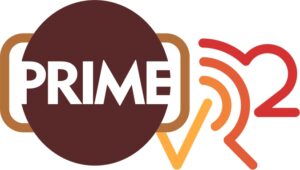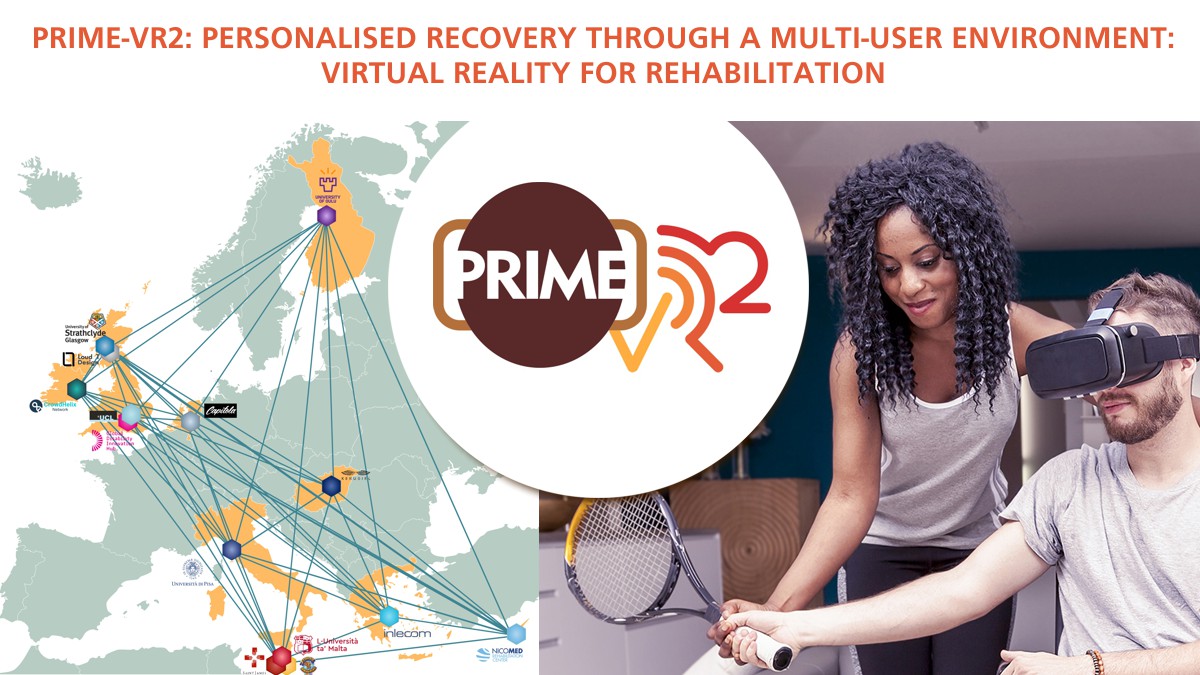The Center for Ubiquitous Computing (UBICOMP), ITEE Faculty, University of Oulu, is working on the project PRIME-VR2: Personalised Recovery through a Multi-User Environment: Virtual Reality for Rehabilitation. The project is a 4 M€ Research and Innovation Action (RIA) financed by the Horizon 2020 EU Framework Programme. The action involves 14 European partners (academic institutions, companies and rehabilitation centers) collaborating on the project.
The role of the UBICOMP in PRIME-VR2 project is on the intersection of hardware and software of the developed bespoke VR rehabilitation controllers and environments. UBICOMP is leading the WP5 on Device and interface design.
Virtual Reality (VR) environments have huge potential for those with compromised physical capability in providing a sense of freedom and motivation, but there are significant barriers in access and effective use in this context. To address these user and technological challenges, PRIME-VR2 project aims to develop an accessible, collaborative VR rehabilitation environment that uses a serious gaming virtual space to provide stimulus, socialisation and friendly competition for users on the path to rehabilitation. By focussing on upper mobility and the reclamation of fine motor skills, the issues of fidelity of movement, ergonomic accessibility, adaptive testing and feedback, and socialisation become paramount in creating a viable user experience. Access to the VR environment will be via customised, adaptive controllers that are tailored for individual users to provide a unique and enhanced level of accessibility and constructed using advanced additive manufacturing techniques. The delivery of the software and hardware elements of this research will require the development of an integrated digital platform that will extend state-of-the-art digital technology in: the configuration of a collaborative VR serious gaming environment for rehabilitation purposes; the rapid acquisition of detailed anatomical and biomechanical user data in relation to the upper body with a focus on the hands and wrists; new principles of mechanical switch actuation and form generation in additive material structures; advanced human-centred design techniques to determine requirements and assess performance; and extended principles of design for manufacture and automation for additive structures and housing design. The results will allow for validation of a sustainable competitive ecosystem of European technology in the domain of interactive rehabilitation.
PI (UOULU): Georgi V. Georgiev
Researchers (UOULU): Vijayakumar Nanjappan, Yazan Barhoush
Project website | LinkedIn |YouTube |Twitter

![]()

